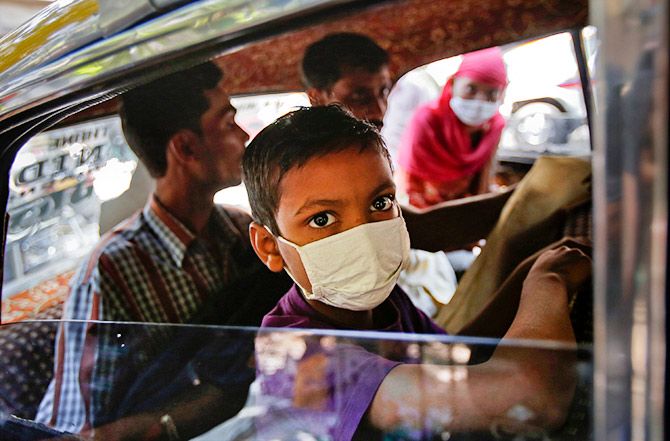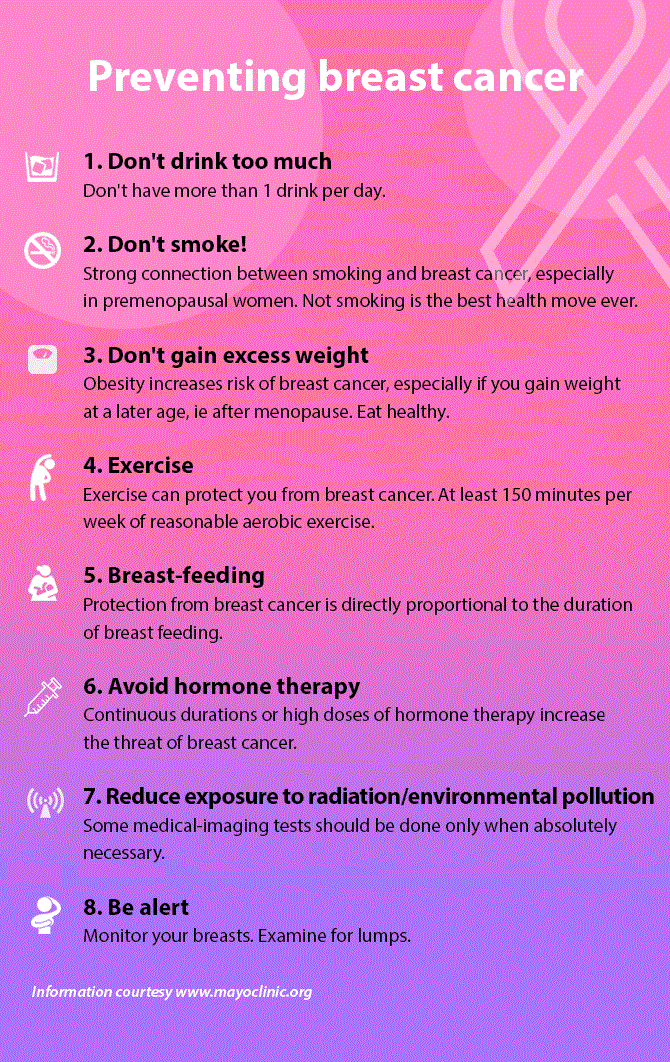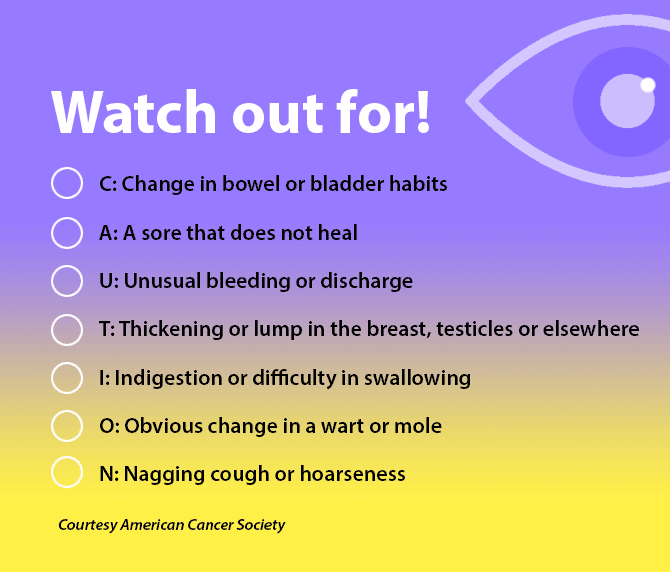'Our body functions in a particular system. We pass urine. We pass motions. We swallow food. We drink water. We breathe properly.'
'If there is an obstruction to any of these things -- difficulty swallowing, difficulty passing urine, passing blood in the urine, passing blood in the stools or severe pain anywhere, lasting for more than a month, or for example the skin, which covers our body, has a few moles that start increasing or bleeding... then you need to see a specialist.'
'Many times they can still not represent a malignancy, but it means your body is telling you: "Look there is some problem. Please have a look at me".'
'You need to go to a doctor. Find out what is happening to you.'

Cancer surgeon Dr Ramakant Deshpande answers the most crucial questions on the disease. And offers very important advice on ensuring yourself a healthy, everyday life.
Part 2 of a must-read interview with Rediff.com's Vaihayasi Pande Daniel.
- Part 1: 'Cancer is not incurable'
How can a young person work to keep themselves cancer-free?
Youngsters always want to know, at their age, the kind of preventive measures they should be taking.
Or the kind of regular testing they should do.
Or the symptoms they should look out for.
If they have strange symptoms, should they go straight to their GP?
Or not waste time and go straight to a cancer hospital?
The incidence of malignancy is not extremely high. But it creates a lot of fear (or anxiety) psychosis. Because of the kind of suffering cancer can cause, in a neglected status particularly. That's why the fear.
But the incidence is not extremely high in India. It is about 350 totally for 100,000 people. That's 11.5 lakh (1.15 million) people (have cancer) for a population of 130 crores (1.3 billion). Those are the new malignancy figures.
It is not an extremely high incidence. The US (for instance) has about four times as much of an incidence of all cancers, for example.
Healthy living is an important thing.
There are certain known carcinogens. Like alcohol. Tobacco in any form.
Stress to some extent. Lack of exercise. Obesity. Hormones. Pollution.
Hormones? Not birth control pills?
Women like to push their menses by taking hormones. Birth control pills have no connection.
Doing this randomly, in excess kind of thing, is not really advisable.
Alcohol?
Excess alcohol consumption is known to cause irritation of the gastric mucosa and bowels and all that. And it compounds the incidence of malignancy.
For example, if smoking 10 cigarettes actually increases lung cancer incidence by maybe about 10 times, if you combine alcohol with smoking, it can go to 40 times.
Plus oesophagal cancer, stomach cancer... These are known to be associated with alcoholics. But for an excess of alcohol. Not an occasional beer or glass of wine. That's okay.

The general public has a perception that many things around them in their environment can cause cancer. All kinds of dire warnings float about on WhatsApp and get forwarded.
There are certain obvious things that cause cancer, like second-hand smoke.
Yes, it is very bad...
But what about, for instance, the pesticide that Mumbai's municipal corporation comes around spraying to reduce mosquitoes?
Some of those. Like DDT is definitely a known carcinogen. Totally stopped now.
Mosquito coil? You have one right there.
No, that is not really proven to be.
Radiation from mobile phones? Mobile towers?
Mobile phones are feared because they can actually cause increased incidence in benign tumours -- eighth nerve thickening. Some minor increase in the incidence has been noted. But nobody has said it can cause cancer.
That proof is not available yet.
Too early?
It's too early. The technology has just come in 10 to 15 years ago
Plastic bottles. Plastic dabbas. Nail polish. Bras. Airport scanner?
Bras and all is false. It is all a concept (theoretical). Saying that it can generate benzene and all that. Nobody has real proof for that.
For example, people say if you get into a car early in the morning, which it is still hot, it will emit benzene. This is all a concept (theoretical). Nobody has really proved: This is it. So many people did this. Increased incidence of cancer happened... It has not been proven.
Lifestyle is a far bigger danger?
Yes, lifestyle is a far bigger danger.
Apart from that, atmospheric pollution. Burning of all those things (into the atmosphere).
If you live in a city like Mumbai, it is equivalent to smoking 20 cigarettes anyway. Then why do you want to smoke another 20 cigarettes?
Tobacco, in any form, particularly smoking, is an invitation to a disaster.
Not only cancer, but it causes several respiratory disorders, increase incidence of cardiac disease, shutdown of various organs, starting from brain, kidney, lungs, even vascular problems in the leg.
Bladder?
Yes, all of this is directly related to the tobacco effects. It is very rare to find a person who doesn't have the side effects of tobacco -- if someone smokes, like for 20 to 30 years, you are definitely going to have pay a price.
It is said that every stick of tobacco that you smoke will reduce your life by 10 to 14 minutes. You can imagine how many days it will take away from your life.
What can one do personally about air pollution? How can one protect oneself personally?
Air pollution -- because of vehicular smoke, industrial pollution, burning -- is a public health kind of an exercise.
Remember recently what happened about the Deonar fire (early last year the garbage dump in north Mumbai had two extensive fires, lasting days). This leads not only to cancer, but primarily to respiratory disorders which go on to promoting respiratory infections. And over a period of time adds to the incidence of cancer.
Atmospheric pollution is an acknowledged pre-carcinogenic kind of a factor by WHO.
What can you personally do? 1. Don't contribute to it!
Number 2, join a movement which actually brings it down.
Number 3, if you find there is too much (pollution in your air), there are filters available that a person can use.
In Shanghai, when the pollution was very high, people were seen using those paper masks, which are special masks that filter off the suspended particles in the air.
Those people who are on the roads for their functioning, like the police, should ideally use those.
The authorities keep identifying the level of pollution. TV normally does mention the number of pollutants in the air and if it is within acceptable limits or non-acceptable limits.
Do air-conditioners help?
Yes, ACs do help. But obviously you can't air-condition a whole city.
An AC has its own problems. If you are careless about cleaning the filter, you can actually be breathing in bacteria. You have to be careful about the maintenance of that.
Are home air filters, which are less expensive, useful?
Yes, they do contribute to the lowering of the pollution.
One should not exercise in high-pollution areas?
That is important.
Why is stress a factor?
Stress also generates a lot of hormones in the body.
What is your definition of stress exactly?
Getting worried about things all the time.
Anxiety?
Yes, anxiety all the time.
Is it good to prefer organic food, fruit and vegetables, which is now coming more and more in the market, food grown without pesticides?
Yes, yes. That is a definite yes. Many of these pesticides are also known to cause tumours. They are pollutants. So, ideally speaking, yes.
Surprisingly, the organic foods are more expensive. To maintain organic quality in food, you have to stick to a lot of criteria, but if it becomes more and more common, probably the prices will come down.
What about water? Should one just boil and filter? Can water be a source of cancer?
Boiling and filtering is a good way of doing it.
But there are several dissolved kind of chemicals which could be (harmful).
In the Gangetic belts you have a lot of pollutants in the water. There are cyanides in the water. That water you can't just boil and filter. It needs to be processed.
You need to have processed, good water. Then you boil, filter and then drink it.
One should then be very aware of the quality of water in your area?
Very, very important. (Repeats)Very, very important. Particularly in a big city like Bombay, many times because of the proximity, the sewage and water lines mix.
You find it all the times in the newspapers that in the water the content of bacteria and pollutants is very high. That is not acceptable.
For even a well-educated person -- who knows about cancer -- often navigating our Indian medical system is very daunting, because of the way it's structured.
Because of the expenses involved.
Because you don't know where to begin.
Because you are worried you will get in the hands of the wrong doctor and will told to get this scan or that done or put onto the wrong medical regimen.
You might have certain strange symptoms. You go to the GP and nothing happens. You are a little bit uncertain how to go forward.
You can't really navigate your life by Google. Google will throw information at you. You can't understand how to interpret it.
It is nice to read. Be guided by someone who is knowledgeable. For example: Your GP would be a good person to guide you in a (general situation) and identify the system which probably affected or is bothering you.
But a GP may not have (that) much domain knowledge to treat you completely.

Where do you start?
If for more than a month, or a month-and-a-half, you have the same complaint/unusual symptom which is not going...
Our body functions in a particular system. We pass urine. We pass motions. We swallow food. We drink water. We breathe properly.
If there is an obstruction to any of these things -- difficulty swallowing, difficulty passing urine, passing blood in the urine, passing blood in the stools or severe pain anywhere, lasting for more than a month, (you are taking medicines for pain relief, but it keeps on coming back again and again) or for example the skin, which covers our body, has a few moles that start increasing or bleeding... then you need to see a specialist.
These are not normal things. Many times they can still not represent a malignancy, but it means your body is telling you: 'Look there is some problem. Please have a look at me.'
You need to go to a doctor. Find out what is happening to you.
Where do you go?
Identify the system. For example, if you have difficulty in swallowing it is gastroenterology.
Talk to your family physician... He may say: 'Okay, there is hyperacidity. I will give you acidity tablets.'
Initially it may even become alright. Then again it might start coming back in two or three weeks. That is the time to see a specialist in gastroenterology.
What if the specialist doesn't detect it is cancer? One knows so many people who have cancers lingering for years that don't get diagnosed.
He would do an endoscopy. He would be actually able to diagnose that.
So one should not come straight to a cancer hospital and find the right cancer specialist, given that the system specialist also might have missed it?
It is not very common for that to happen. Not very common.
So don't let them make a beeline to cancer centres? Should one not change specialists if one doesn't have faith?
One month with a general practitioner. One month with a specialist.
If after that, you are not alright, then you need to go to a cancer specialist.
Any crucial points on knowing if you are in the hands of a good doctor?
A good doctors is someone who listens to you first. That is number one.
Not someone who is so busy he doesn't have time to listen to your complaint. And analyses it, discusses with you what exactly your problem is, and is able to convince you about the diagnosis and draw out a logical proposal to diagnose and treat it.
Ninety-nine per cent patients are intelligent enough, whether they are literate or not, to understand whether the person who is sitting in front of them, as a doctor, is able to convince them properly or not.
Don't be convinced by very simplistic answers. The treatment has to (take care) of that particular symptom and it should not repeat.
Don't get into the hands of quacks, who are confidence tricksters, who promise the world and absolutely magical results kind of thing.
If any kind of health symptom persists, even after one month, you need to see a proper doctor. This is very very important.
A doctor asking for a test is not a disadvantage. The doctor will need to have additional information before he can summarise the situation, start treating.
But to have complete, comprehensive information about your condition is your ethical right. Don't forgo it.
If you are not comfortable with a doctor, then change your doctor.
What about awareness in India about cancer? You did mention about how people don't realise it is incurable...
There is awareness on one side.
Fear on the other.
Fear far outweighs awareness. Sometimes, to such an extent, that people don't want to know it is cancer. That keeps them away from the doctors, which is terrible.
It is really sad. You really feel bad for the patient. The patient has symptoms. He has not come out of sheer fear.
You see women who have a mass in the breast. They would have some kind of idea that a mass in the breast could be breast cancer. Or something like that since it is becoming bigger and bigger.
They say it was not painful, so I didn't really go to a doctor. This is how it works.
- Part 3 of the interview: How good are India's cancer hospitals?
IMAGE: Cancer patients Aryan Khan, front, and Areena Bibi, rear, in a taxi window, outside the Tata Memorial Centre in Mumbai. Photograph: Vivek Prakash/Reuters
DO read the Cancer features in the RELATED LINKS BELOW...










